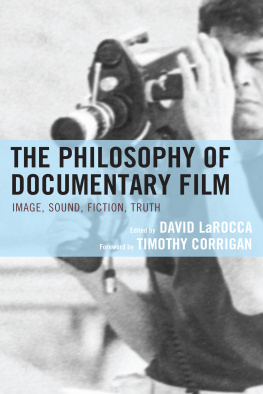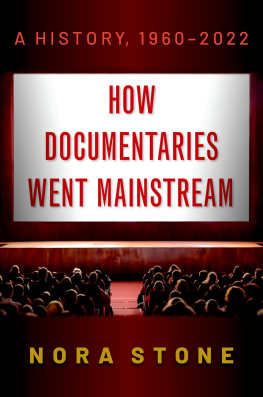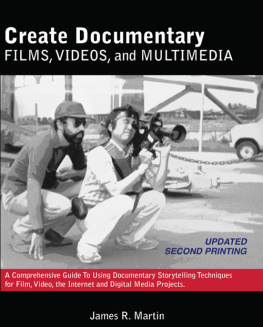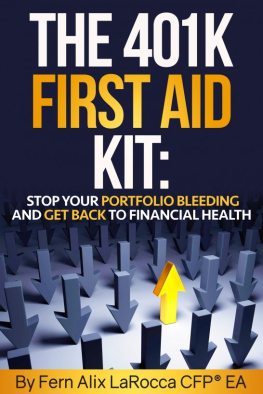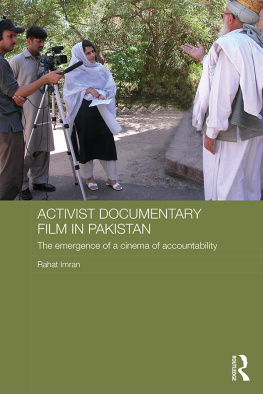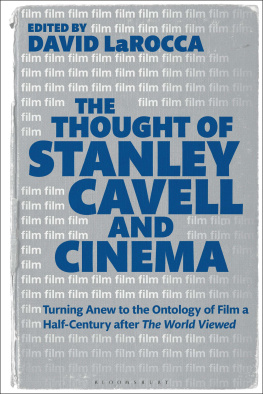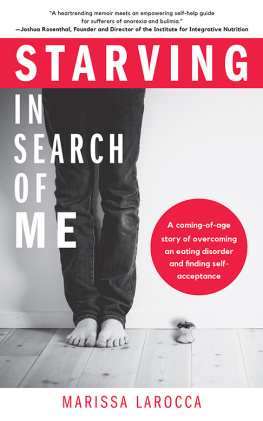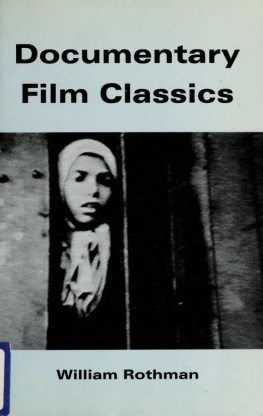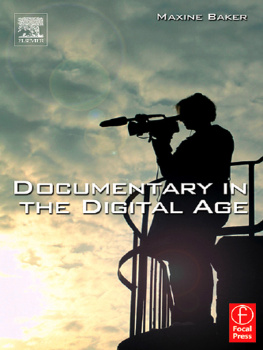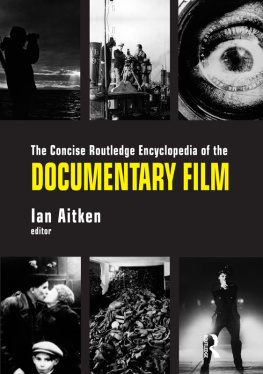LaRocca - The Philosophy of Documentary Film
Here you can read online LaRocca - The Philosophy of Documentary Film full text of the book (entire story) in english for free. Download pdf and epub, get meaning, cover and reviews about this ebook. City: Lanham;Maryland, year: 2017, publisher: Lexington Books, a division of Rowman & Littlefield Publishers, Inc., genre: Romance novel. Description of the work, (preface) as well as reviews are available. Best literature library LitArk.com created for fans of good reading and offers a wide selection of genres:
Romance novel
Science fiction
Adventure
Detective
Science
History
Home and family
Prose
Art
Politics
Computer
Non-fiction
Religion
Business
Children
Humor
Choose a favorite category and find really read worthwhile books. Enjoy immersion in the world of imagination, feel the emotions of the characters or learn something new for yourself, make an fascinating discovery.
- Book:The Philosophy of Documentary Film
- Author:
- Publisher:Lexington Books, a division of Rowman & Littlefield Publishers, Inc.
- Genre:
- Year:2017
- City:Lanham;Maryland
- Rating:4 / 5
- Favourites:Add to favourites
- Your mark:
- 80
- 1
- 2
- 3
- 4
- 5
The Philosophy of Documentary Film: summary, description and annotation
We offer to read an annotation, description, summary or preface (depends on what the author of the book "The Philosophy of Documentary Film" wrote himself). If you haven't found the necessary information about the book — write in the comments, we will try to find it.
LaRocca: author's other books
Who wrote The Philosophy of Documentary Film? Find out the surname, the name of the author of the book and a list of all author's works by series.
The Philosophy of Documentary Film — read online for free the complete book (whole text) full work
Below is the text of the book, divided by pages. System saving the place of the last page read, allows you to conveniently read the book "The Philosophy of Documentary Film" online for free, without having to search again every time where you left off. Put a bookmark, and you can go to the page where you finished reading at any time.
Font size:
Interval:
Bookmark:
Praise for The Philosophy of Documentary Film
This anthology is a gem! Bringing together documentary filmmakers, philosophers, and film theorists, this volume will be an important resource for all those who are interested in this important genre of filmmaking, be they students, professors, scholars, or just serious film viewers. Get it for yourself and see!
Thomas E. Wartenberg , Mount Holyoke College, author of Thinking on Screen: Film as Philosophy and coeditor (with Cynthia Freeland) of Philosophy and Film
An impressive selection, including some of the most interesting voices in documentary thought.
Jonathan Kahana , University of California, Santa Cruz, author of Intelligence Work: The Politics of American Documentary and editor of The Documentary Film Reader: History, Theory, Criticism
This is the collection of essays on documentary film that I have been waiting for. It brings together many of the best classic pieces on documentary theory and practice, and a thrilling assortment of new essays by philosophers, film scholars devoted to aesthetic issues and close reading, and documentary filmmakers who teach. The writing throughout is of the highest order, and the promise of genuine (as opposed to tinkertoy) philosophical inquiry is amply kept. David LaRocca has done an exemplary job of editing, and his lengthy overview essay that serves as the volumes introduction is incisive and indispensable.
George Toles , University of Manitoba, author of Paul Thomas Anderson and A House Made of Light: Essays on the Art of Film , and screenwriting collaborator of Guy Maddin
Timely. Vital. Engaging. An essential companion to any thinking about documentary cinema. David LaRocca is especially attuned not just to the voices at the heart of theoretical debates but, to my liking, also to those who push out into the practice and craft of documentary filmmaking.
Paul Cronin , School of the Visual Arts, editor of Werner Herzog: A Guide for the Perplexed , Be Sand, Not Oil: The Life and Work of Amos Vogel , and Lessons with Kiarostami
With the pervasive and facile use of digital manipulation of images in public and private communications, few questions are more important than the question raised by this richly rewarding bookWhat is real and what is fake? In 1960 my executive producer at NBC warned us to be careful of what we put on the screen because he said people will believe it.
David LaRocca, in his comprehensive and well-articulated introduction, reminds us that a critical mind has never been more essential to acquire a fuller, truer, experience of reality. As a successful documentarian for over sixty years, I know of no other book that is more useful in the pursuit of that goal.
Bill Jersey , director of A Time for Burning (1967) and Eames: The Architect and the Painter (2011); winner of two Peabodys, Emmys, and Oscar nominations
As far as documentary film and philosophy are concerned, David LaRocca has summoned a cloud of reliable witnesses and all the usual suspects, or so it seems. Once readers enter the critical conversations that these estimable writers provoke and sustain, the criteria for reliability and suspicion themselves become productively volatile, and that volatility will lead readers to surprising insights and reflections. From considerations of Plato to Cavell and well beyond, these memorable essays fruitfully explore both truth and make-believe in documentary film, as well as the manifold challenges of discerning the elusive differences between them.
Lawrence Rhu , University of South Carolina, author of Stanley Cavells American Dream: Shakespeare, Philosophy, and Hollywood Movies
At the center of many of these observations and discussionsnow receiving new and expert engagements in The Philosophy of Documentary Film has been the taunting power of cinematic reality, nowhere more concentrated than in the quintessential art of the real, the provocative revelator of truth, documentary cinema. These works in hand are contemporary perspectives on, for me, the most vibrant practice in contemporary cinema. They call us to think carefully and seriously not only about the truth claims and strategies of specific documentary films but also about why documentaries are so central to our age.
Timothy Corrigan , University of Pennsylvania, author of The Film Experience (with Patricia White) and The Essay Film: From Montaigne, After Marker
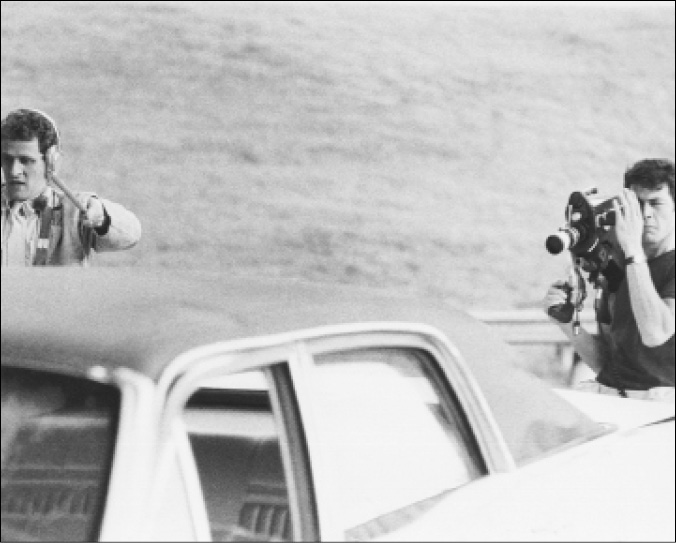
The Philosophy of Popular Culture
Series Editor : Mark T. Conard, Marymount Manhattan College
The Philosophy of Popular Culture series comprises volumes that explore the intersection of philosophy and popular culture. The works are devoted to a subject in popular culture, such as a particular genre, filmmaker, or television show. The essays investigate the philosophical underpinnings, or do a philosophical analysis, of the particular topic. The books will contain smart, jargon-free essays that illuminate texts (films and TV shows) in popular culture, and they will introduce nonspecialists to traditional philosophical ideas and issues. The governing ideas of the series are that texts in popular culture are worthy of philosophical analysis and that philosophical thinking and traditional philosophical concepts can enlighten us and enrich our everyday lives.
Titles in the Series
The Who and Philosophy, edited by Rocco J. Gennaro and Casey Harison
The Philosophy of Documentary Film: Image, Sound, Fiction, Truth , edited by David LaRocca
The Philosophy of Documentary Film
Image, Sound, Fiction, Truth
Edited by
David LaRocca
Lexington BOOKS
Lanham Boulder New York London
Published by Lexington Books
An imprint of The Rowman & Littlefield Publishing Group, Inc.
4501 Forbes Boulevard, Suite 200, Lanham, Maryland 20706
www.rowman.com
Unit A, Whitacre Mews, 26-34 Stannary Street, London SE11 4AB
Copyright 2017 by Lexington Books
All rights reserved. No part of this book may be reproduced in any form or by any electronic or mechanical means, including information storage and retrieval systems, without written permission from the publisher, except by a reviewer who may quote passages in a review.
British Library Cataloguing in Publication Information Available
Library of Congress Cataloging-in-Publication Data Available
ISBN 978-1-4985-0451-5 (cloth : alk. paper)
ISBN 978-1-4985-0452-2 (electronic)
 The paper used in this publication meets the minimum requirements of American National Standard for Information SciencesPermanence of Paper for Printed Library Materials, ANSI/NISO Z39.48-1992.
The paper used in this publication meets the minimum requirements of American National Standard for Information SciencesPermanence of Paper for Printed Library Materials, ANSI/NISO Z39.48-1992.
Printed in the United States of America
Dedicated with affection and admiration to Stanley Cavell
and to the memory of
Chantal Akerman, Abbas Kiarostami, V. F. Perkins, Amos Vogel, and Haskell Wexler
Contents
Timothy Corrigan
David LaRocca
Stanley Cavell
Nol Carroll
Gregory Currie
Carl Plantinga
Vivian Sobchack
Tom Gunning
Scott MacDonald
William Rothman
William Day
Claudia Pederson and Patricia R. Zimmermann
Ariella Azoulay
Diana Allan
Mieke Bal
Bernadette Wegenstein
Dan Geva
Elan Gamaker
Selmin Kara
Rick Altman
Lars von Trier and Thomas Vinterberg
Werner Herzog
V. F. Perkins
Jennifer L. McMahon
Keith Dromm
K. L. Evans
Bill Nichols
Michael Fried
Garry L. Hagberg
Charles Warren
Linda Williams
Karen D. Hoffman
David LaRocca
Next pageFont size:
Interval:
Bookmark:
Similar books «The Philosophy of Documentary Film»
Look at similar books to The Philosophy of Documentary Film. We have selected literature similar in name and meaning in the hope of providing readers with more options to find new, interesting, not yet read works.
Discussion, reviews of the book The Philosophy of Documentary Film and just readers' own opinions. Leave your comments, write what you think about the work, its meaning or the main characters. Specify what exactly you liked and what you didn't like, and why you think so.

